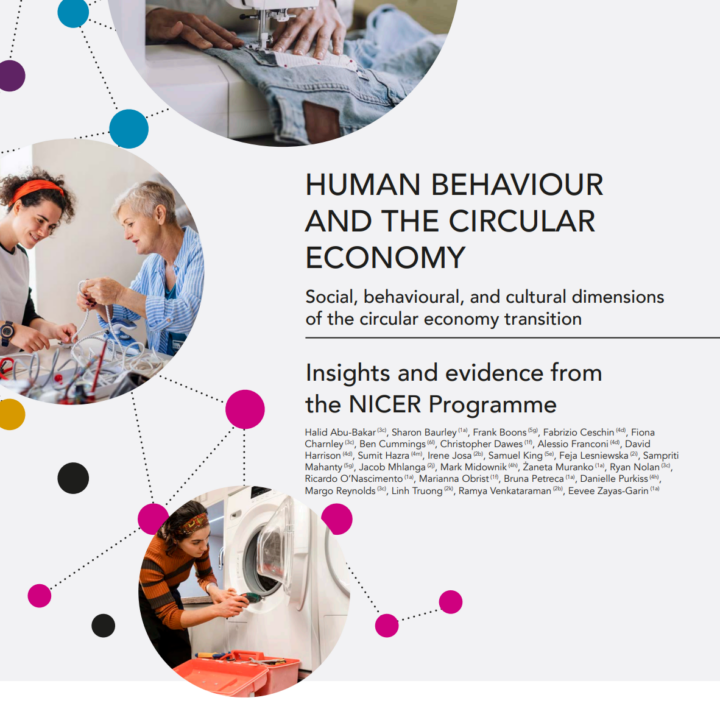CE-Hub, 2024
NICER INSIGHT REPORT: HUMAN BEHAVIOUR AND THE CIRCULAR ECONOMY
CE HUB 2025
NICER PROGRAMME INSIGHT REPORT
This insight report collates the evidence and insights gained throughout the duration of the NICER Programme on the role of human behaviour in the transition to a circular economy. By synthesising onthe-ground insights and experiences from researchers across NICER with academic literature, we present a view of the challenges and opportunities in implementing circular principles with a particular focus on systems change. In doing so, we highlight the interplay and interdependencies between technological innovation, social dynamics, and economic structures in driving successful change at scale. Through this integration of practical research outcomes and theoretical context, we aim to provide an understanding of the pathways towards a more sustainable and resilient CE, offering new insights for policymakers, businesses, and communities alike.
Human behaviour plays a pivotal role in the successful transition to a CE. Individual and collective actions, from consumer purchasing decisions to corporate strategies, directly impact the adoption and effectiveness of circular principles. Understanding and influencing these behaviours is crucial, as they shape consumption patterns, drive demand for sustainable products, and determine the success of new initiatives such as reuse and recycling. Behavioural insights can inform policy design, product development, and communication strategies, helping to overcome barriers to circular practices. Moreover, fostering a ‘circular mindset’ among individuals and organisations is essential for creating a culture that supports long-term systemic change.
As such, addressing human behaviour is not just one component of CE discourse, but a fundamental driver of its realisation and success. In what follows, we present nine insights, based on the synthesis of the key learnings from across the NICER Programme. These insights also point to the directions of future research, policy, and innovation, with specific focus on the humans in the CE.







